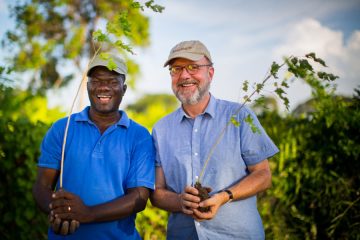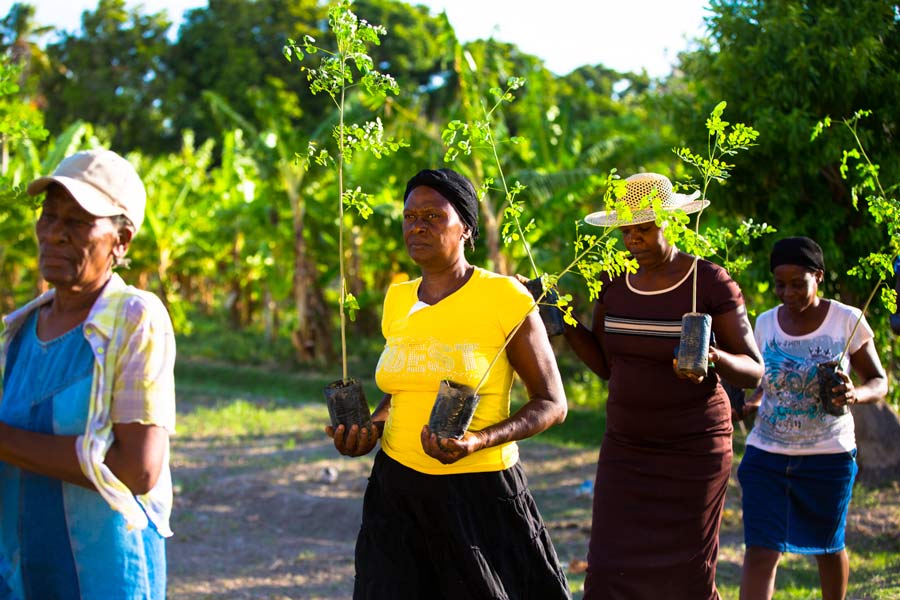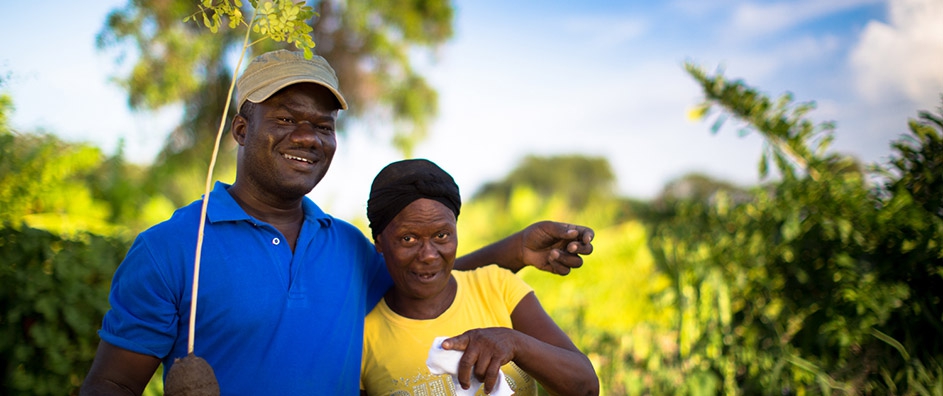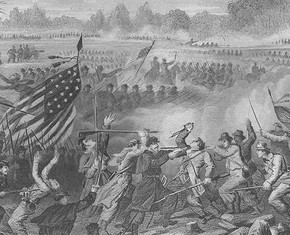The views expressed in our content reflect individual perspectives and do not represent the authoritative views of the Baha'i Faith.
The world’s population now grows by 211,000 new human beings every day. To feed the two billion additional people we’ll have on Earth by 2050, the world needs to figure out how to deal with its approaching food crisis, where production simply cannot meet the ever-increasing demand.
So far, the standard solution hasn’t worked: accelerating the clear-cutting or the burning of forests to create open land for more large-scale industrialized agriculture. Instead, the decimation of forests has ruined native habitat, pushed many species into extinction, and heavily contributed to climate change. The math is chilling: estimates say that it takes one cleared acre of forest to feed each additional Earth citizen at U.S. levels of consumption. We certainly cannot sustain two billion acres of cleared forest.
At least one other option exists, in the form of an innovative experiment that has proven to significantly increase food production while at the same time increasing tree cover rather than reducing it. The story begins in one of the most unlikely places—rural Haiti—with an organization co-founded by a Baha’i called the Smallholder Farmers Alliance (SFA).

Hugh Locke, a Baha’i of Canadian descent, and Timote Georges, a Haitian Christian, set out to plant trees in a country with one of the highest rates of deforestation in the world. Haiti, once covered in dense tropical forests, now has less than two percent tree cover. Inspired by the Baha’i teachings, Locke co-founded the SFA to see what could be done to help poor rural farmers and the environment:
Beware lest ye offend any heart, lest ye speak against anyone in his absence, lest ye estrange yourselves from the servants of God. You must consider all His servants as your own family and relations. Direct your whole effort toward the happiness of those who are despondent, bestow food upon the hungry, clothe the needy, and glorify the humble. Be a helper to every helpless one, and manifest kindness to your fellow creatures in order that ye may attain the good pleasure of God. This is conducive to the illumination of the world of humanity and eternal felicity for yourselves. – Abdu’l-Baha, The Promulgation of Universal Peace, p. 469.
When Locke and Georges asked the Timberland company to sponsor a program that actually paid farmers to plant trees, the answer was “yes… but on the condition that you can show how it will be sustainable after our funding stops.”
That question forced the two men and their faith-inspired non-profit organization to come up with a business case for planting trees. The solution? Combine reforestation with one of Haiti’s other major issues, namely the very low yields of smallholder farmers. The new SFA model made planting trees a way for every smallholder farmer member to earn better seeds, tools and training. The results exceeded everyone’s expectations: crop yields went up by an average of 40%, farm input costs went down, and farmers’ household incomes increased by an average of 50%. The result? A market-based approach to produce more food that also grows more trees and protects the climate.

In addition to the resulting agroforestry cooperatives, the SFA model has added microfinance support for women farmers; established a farmer field school; created farm businesses; and begun exporting agricultural products.
Five million trees and 3,200 farmer-members later—with the help of Timberland and the Clinton Foundation—the model has expanded. Locke created a new, global non-profit organization called Impact Farming to carry the new model beyond Haiti’s borders.
That new model focuses on a few important facts:
- The world’s largest under-performing agricultural asset is the 2.5 billion people who live and work on 500 million smallholder family farms.
- Each with less than five acres (roughly two hectares), these farmers constitute one third of the entire global population and currently produce 70% of our food on 60% of the earth’s arable land.
- But as in Haiti, most smallholder farmers function at well under half their capacity, and together represent the majority of the poorest and hungriest people in the world.
Impact Farming works with smallholder farmers throughout the developing world to advance business solutions that integrate sustainable food production with increased tree cover.
While smallholder farmers are emerging globally as the new food and forestry frontier, the Haiti experience has shown that they are also uniquely positioned to be leaders in addressing other important issues. Deploying organic principles in the process of growing more food and more trees helps restore the environment and reduce climate change. When women farmers receive support along the way, it further increases overall yields, at the same time as improving life for women and girls. For example: when women have a greater say in managing increased household income, they are more likely to ensure a higher rates of school attendance. An overall improvement in rural economies also attracts young people to stay and not migrate to already over-burdened urban areas.
With a bit of help, the Impact Farming approach shows, smallholder farmers can use an entrepreneurial model to transform families, communities and local economies—and end up changing the world.
“We realized in Haiti,” Locke said, “that this entire forgotten group of people can become a self-financing army of rural transformation, especially if women are allowed to take a leading role:”
It has been objected by some that woman is not equally capable with man and that she is deficient by creation. This is pure imagination. The difference in capability between man and woman is due entirely to opportunity and education. Heretofore woman has been denied the right and privilege of equal development. If equal opportunity be granted her, there is no doubt she would be the peer of man. – Abdu’l-Baha, The Promulgation of Universal Peace, p. 135.
Next: How to Help People: A Unique Baha’i-Inspired Model
















Comments
Sign in or create an account
Continue with Googleor